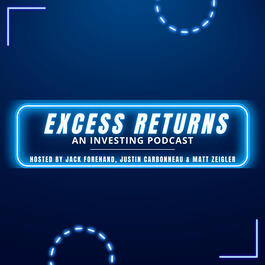
In this episode, we sit down with Ben Carlson of Ritholtz Wealth Management and A Wealth of Common Sense to talk about market valuations, the rise of AI, investor behavior, and what history can teach us about investing today. Ben shares his perspective on why valuations are harder to use than ever, how market structure has shifted, and the lessons he’s learned as both a writer and an investor navigating major market cycles. Topics covered in this episode: Why market valuations are harder to use today than in the past The impact of buybacks, margins, and technology on long-term comparisons Market concentration and the dominance of mega-cap tech stocks Passive investing flows, investor behavior, and government backstops How AI compares to past technological innovations and its investment implications Value versus growth cycles and why U.S. tech has broken historical norms The lessons of the NASDAQ since 2000 and defining the long term for investors Personal experiences from the 2008 financial crisis and the power of compounding Diversification, gold’s surprising performance, and the case for international investing Timestamps: 00:00 Introduction and market valuations 06:00 Structural changes and the role of buybacks 09:00 Margins, efficiency, and corporate dominance 12:00 Market concentration and the rise of mega-cap tech 14:00 Passive investing and household stock ownership 18:00 Government backstops and market resilience 23:00 Valuations as expectations vs. predictions 25:00 AI boom and capital allocation 29:00 Is this 1996 or 1999? Bubble comparisons 32:00 How AI may reshape investing and daily life 41:00 Investing in breakthrough technologies 43:00 Value versus growth cycles in the U.S. and abroad 46:00 Lessons from the NASDAQ and defining long-term investing 49:00 Compounding lessons from the 2008 financial crisis 53:00 Diversification, gold, and international performance
From "Excess Returns"


Comments
Add comment Feedback